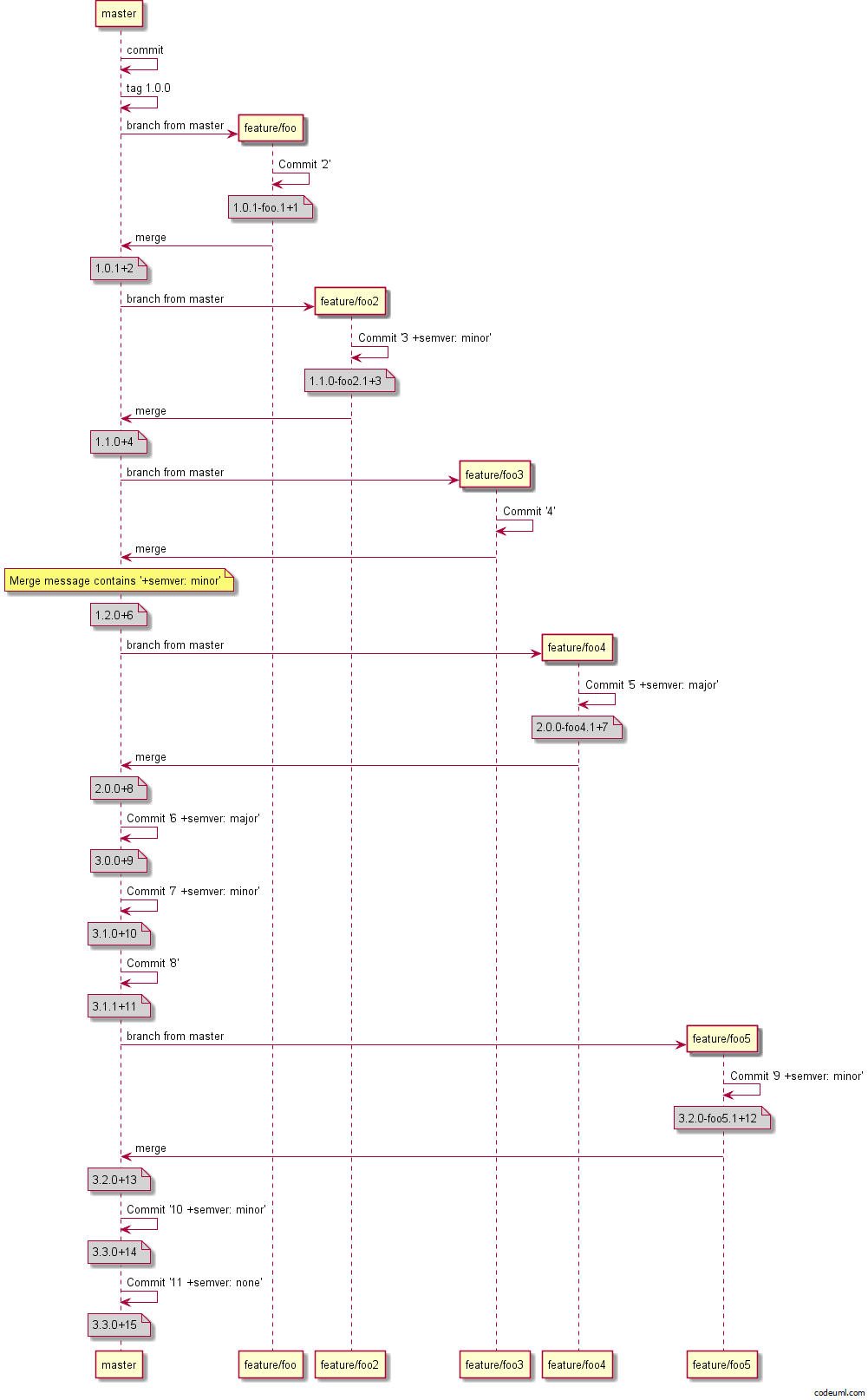Mainline Development is enabled when using
GitHubFlow
or any other strategy where you develop on main. The
main rule of mainline development is that
main is always in a state that it could be deployed to
production. This means that pull requests should not be merged until they are
ready to go out.
To properly achieve mainline development you need confidence in your test suite as if it goes green against a PR then you are confident that you can merge and release that pull request. Another property of mainline development is normally that you fix going forward, not revert. When an issue is discovered with a release, add a test or some sort of check to make sure it won't happen again, fix the issue, then do a release with the fix.
Like all things, it is an approach and will work for some people and not for others. GitVersion is unique in the fact that it works very well with mainline development and the version numbers it generates are predictive and indicate what the next version to be released is. Most other approaches require bumping the version number before the release which means that the version being built and the version number which will be deployed are often different.
This mode is great if you do not want to tag each release because you simply deploy every commit to main. The behaviour of this mode is as follows:
- Calculate a base version (likely a tag in this mode)
- Walk all commits from the base version commit
-
When a merge commit is found:
- Calculate increments for each direct commit on main
- Calculate the increment for the branch
- Calculate increments for each remaining direct commit
- For feature branches then calculate increment for the commits so far on your feature branch.
If you do not want GitVersion to treat a commit or a pull
request as a release and increment the version you can use
+semver: none or +semver: skip in a commit
message to skip incrementing for that commit.
Here is an example of what mainline development looks like:

Warning
This approach can slow down over time, we recommend to tag intermittently (maybe for minor or major releases) because then GitVersion will start the version calculation from that point. Much like a snapshot in an event sourced system. We will probably add in warnings to tag when things are slowing down.
Usage
By default GitVersion is set up to do
Continuous Delivery
versioning on all branches but develop (which does
Continuous Deployment
by default). To change the
versioning mode to Mainline
Development, just change the
configuration as such:
mode: Mainline